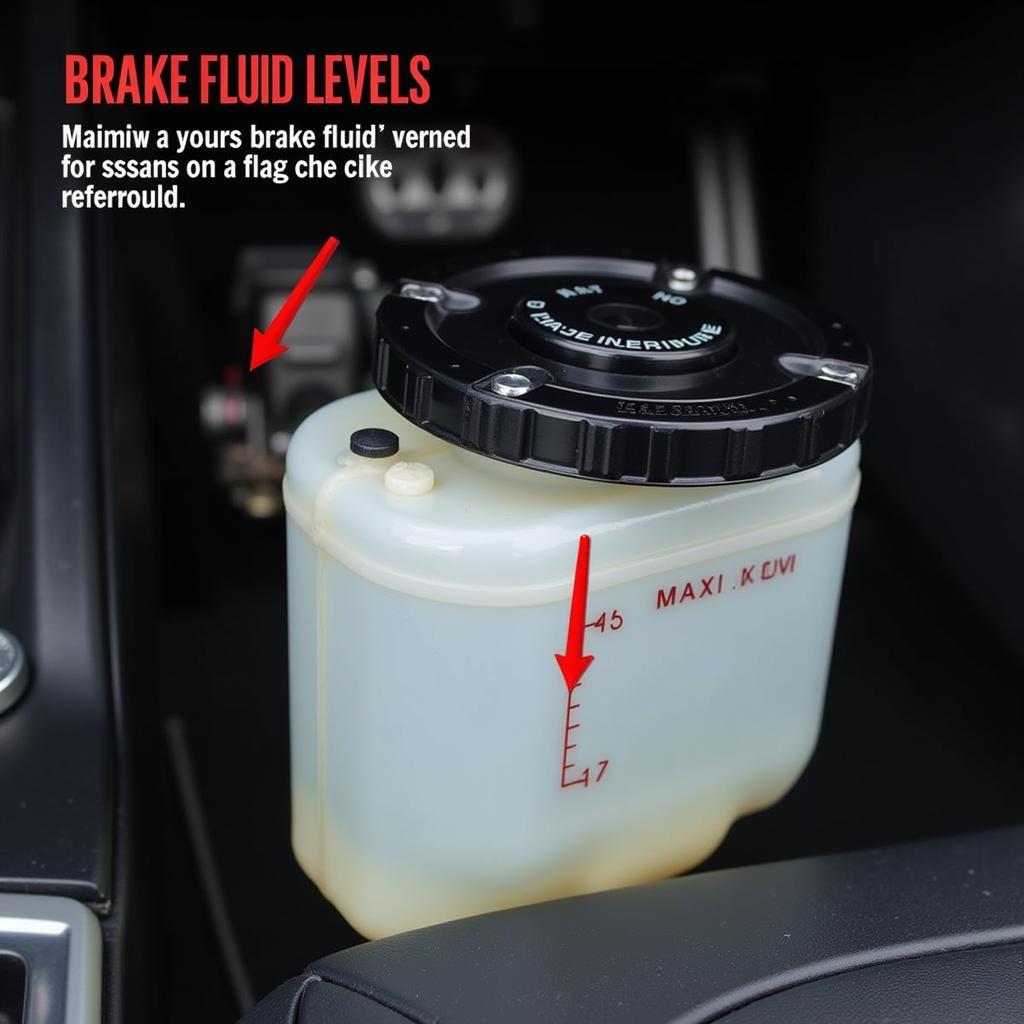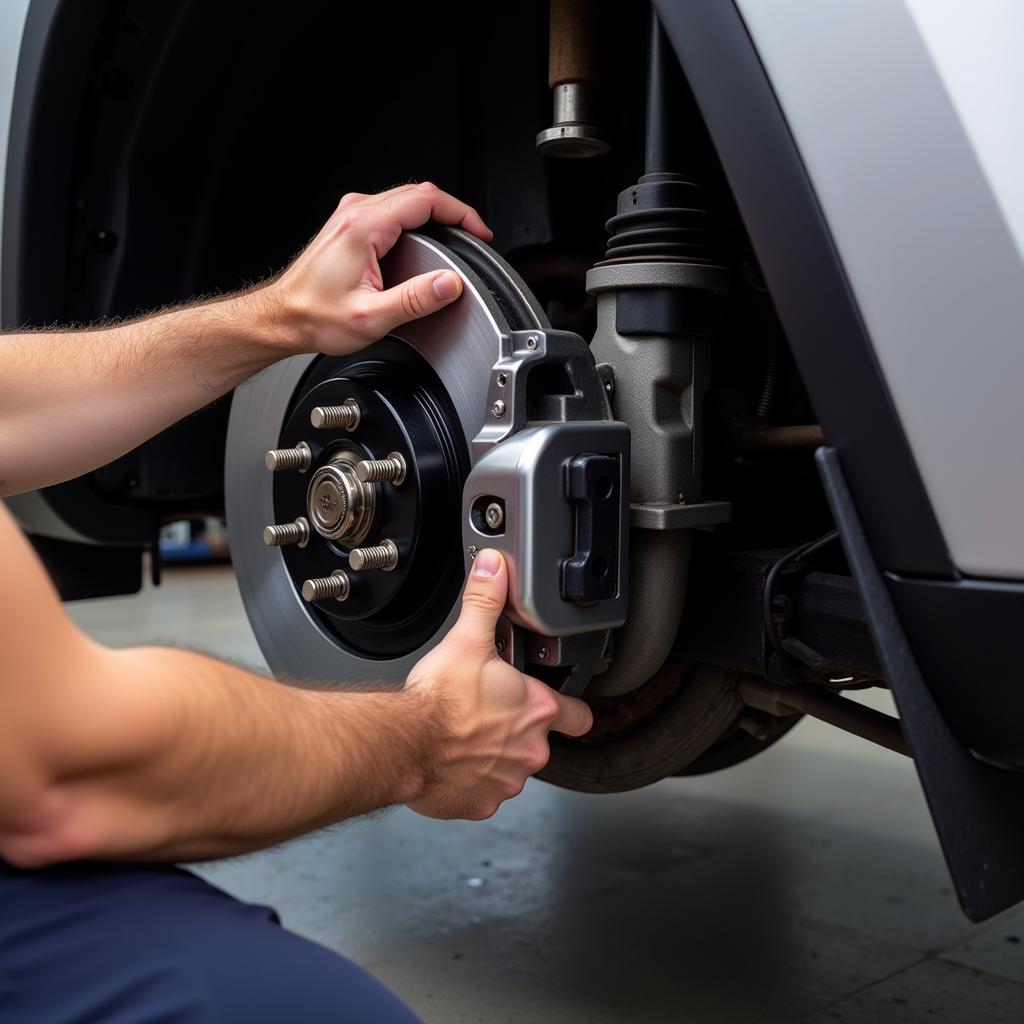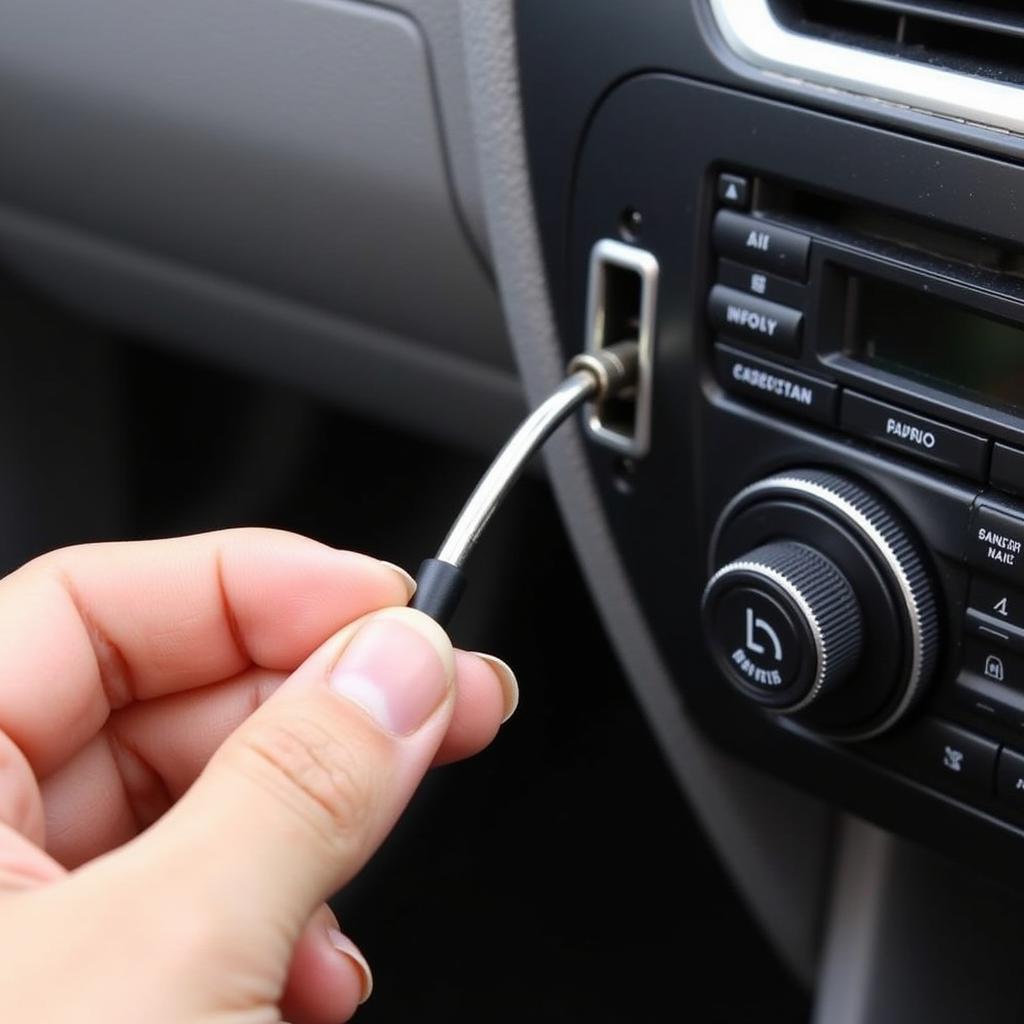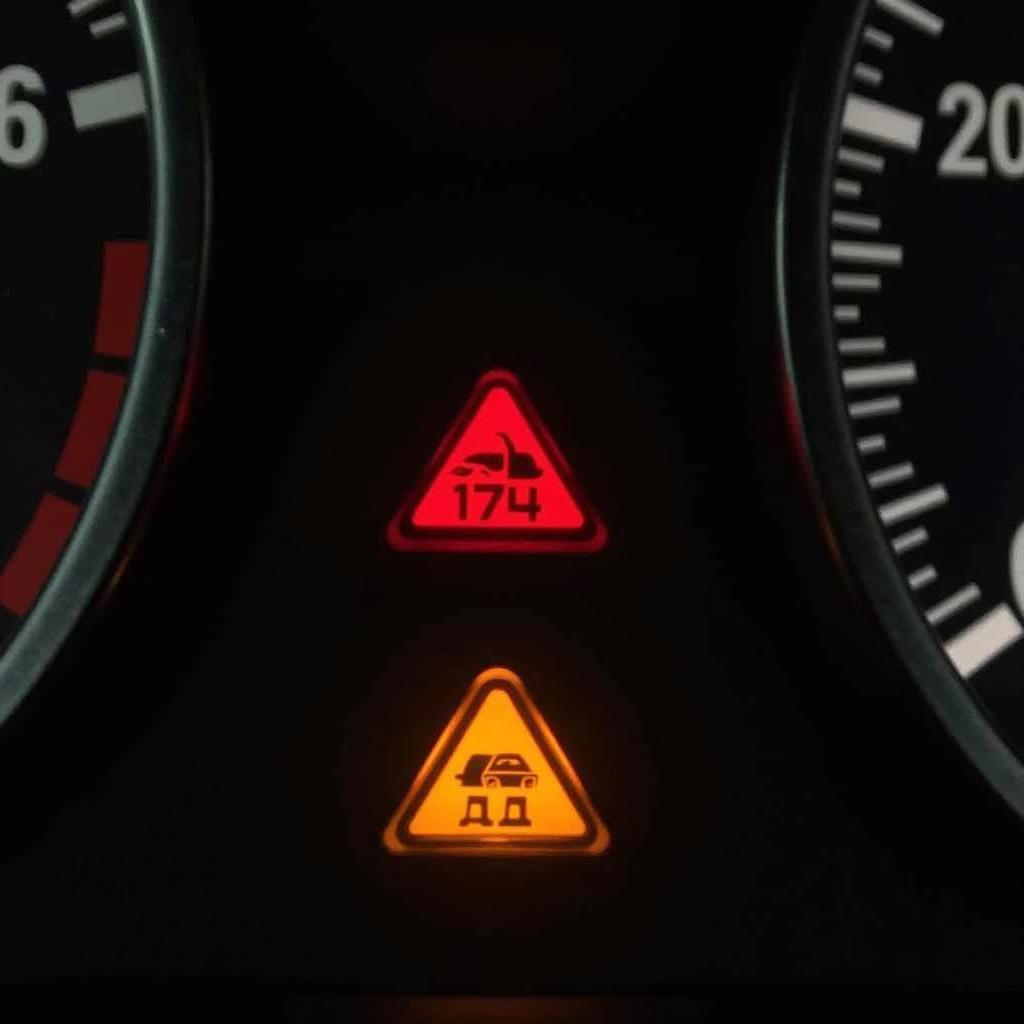A glowing brake warning light on your Jeep Grand Cherokee’s dashboard can be an unnerving experience. This light, often accompanied by the words “BRAKE” or “Anti-Lock Brake System (ABS),” signals an issue within your vehicle’s braking system that requires immediate attention. While it can be alarming, understanding the potential causes and solutions can help you address the issue swiftly and confidently.
Decoding the Brake Warning Light
The brake warning light serves as a crucial safety feature, alerting you to potential problems with your Jeep Grand Cherokee’s braking system. When illuminated, it indicates that one or more components within the system are malfunctioning and require inspection. Ignoring this warning light can compromise your vehicle’s braking ability, putting you and your passengers at risk.
Common Culprits Behind a Lit Brake Warning Light
Several factors can trigger the brake warning light in your Jeep Grand Cherokee. These include:
- Low Brake Fluid: This is one of the most common reasons for the warning light to activate. A leak in the braking system can lead to low brake fluid levels, hindering the hydraulic pressure needed for proper braking.
- Worn Brake Pads: Brake pads naturally wear down over time. When they reach a critical thickness, a sensor triggers the warning light, indicating the need for replacement.
- Faulty ABS Sensors: The Anti-lock Brake System (ABS) relies on sensors to monitor wheel speed and prevent wheel lockup during braking. A malfunctioning ABS sensor can disrupt the system and illuminate the warning light.
- Defective Brake Caliper: Brake calipers house the brake pads and apply pressure to the rotors, slowing down the vehicle. A stuck or leaking caliper can affect braking performance and trigger the warning light.
- Electrical Issues: Issues with the electrical components of the braking system, such as wiring harnesses, connectors, or the brake light switch, can also cause the warning light to come on.
 Jeep Grand Cherokee brake fluid reservoir
Jeep Grand Cherokee brake fluid reservoir
Troubleshooting Your Jeep Grand Cherokee’s Brake Warning Light
Before rushing to a mechanic, you can perform some basic checks to identify the potential cause of the brake warning light:
- Check Brake Fluid Level: Park your Jeep Grand Cherokee on a level surface and turn off the engine. Locate the brake fluid reservoir under the hood, typically a translucent container with “DOT 3” or “DOT 4” markings. Visually inspect the fluid level, ensuring it falls between the minimum and maximum lines.
- Inspect Brake Pads: If possible, visually examine the brake pads through the wheel spokes. Look for significant wear or if the pad material is close to the metal backing plate. If the pads appear excessively worn, they likely require replacement.
- Examine Visible Brake Components: Look for any signs of fluid leaks around the brake lines, calipers, and wheel cylinders. Check for cracks, bulges, or damage to the brake hoses.
When to Seek Professional Help
If your initial inspection doesn’t reveal the issue or you’re uncomfortable performing these checks, it’s crucial to seek professional assistance immediately. Driving with a compromised braking system is extremely dangerous.
“Ignoring a brake warning light is like playing Russian roulette with your safety,” says automotive expert John Miller. “Even if your brakes seem to be working fine, there’s a reason that light is on. Addressing the issue promptly can prevent a minor problem from escalating into a major safety hazard.”
Preventive Maintenance for a Healthy Braking System
Regular maintenance is key to preventing brake warning light surprises. Following a consistent maintenance schedule can help ensure your Jeep Grand Cherokee’s braking system remains in optimal condition:
- Regular Brake Fluid Flushes: Brake fluid absorbs moisture over time, which can corrode brake components and reduce braking efficiency. Refer to your owner’s manual for the recommended brake fluid flush intervals.
- Timely Brake Pad Replacement: Don’t wait for the brake warning light to illuminate before changing your brake pads. Regularly check their condition and replace them based on wear and tear or the manufacturer’s recommendations.
- Annual Brake Inspections: Schedule a comprehensive brake inspection with a qualified mechanic at least once a year. This inspection should include checking the entire braking system, including fluid levels, hoses, calipers, and rotors.
 Jeep Grand Cherokee brake inspection
Jeep Grand Cherokee brake inspection
Conclusion
A glowing brake warning light on your Jeep Grand Cherokee should never be ignored. While it can be a simple fix like low brake fluid, it could also indicate a more serious problem requiring professional attention. Understanding the potential causes, performing basic troubleshooting, and adhering to a regular maintenance schedule can help ensure your Jeep Grand Cherokee’s braking system remains in top condition, providing you with peace of mind and a safe driving experience.



